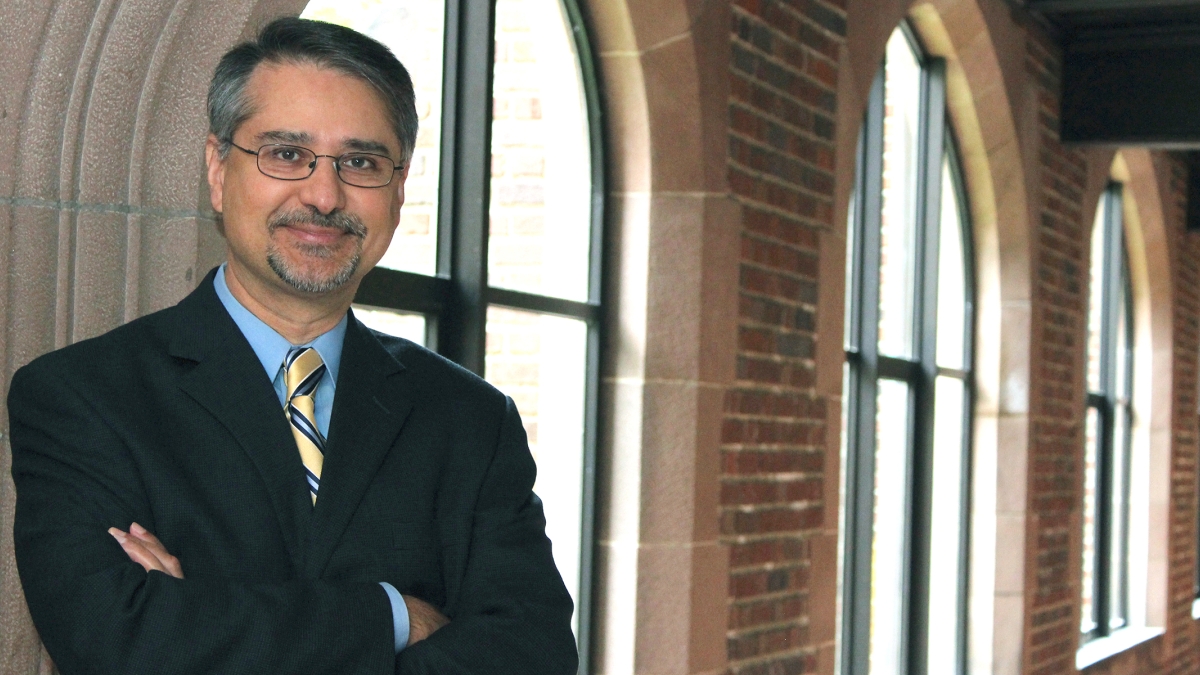POSTPONED — Ethics and international relations scholar to speak about Islam, humanitarian intervention at ASU

Editor's note: Due to family reasons professor Sohail Hashmi is unable to come to Tempe at this time. His visit has been postponed to a date to be determined later; an announcement will be made as soon as it has been rescheduled. The Center for the Study of Religion and Conflict apologizes for any inconvenience and thanks you for your continued support of our events.
The humanitarian crisis in Syria and neighboring states raises urgent questions about the responsibility of the international community — particularly the U.S. — to intervene to relieve human suffering.
As in Somalia, Bosnia, Kosovo and Libya, the use of military force for humanitarian purposes occupies a central place in that conversation. But in the wake of Western-led military actions in Afghanistan, Iraq and Libya, the debate over intervening in Muslim-majority countries is deeply contentious, and the implications are grave.
Sohail Hashmi, Alumnae Foundation Chair and professor of international relations at Mount Holyoke College, will address these issues in a free public lecture titled, “Is There an Islamic Ethic of Humanitarian Intervention?”
The lecture will be held at noon, Wednesday, March 16, at the Center for the Study of Religion and Conflict in West Hall, room 135, on ASU’s Tempe campus.
As a specialist in religion and politics, Western and Islamic moral and political philosophy, and Middle East politics, Hashmi is particularly concerned with the religious and ethical implications of humanitarian and foreign intervention.
“In such crises, what response does Islamic ethics require from Muslim states and peoples?” asks Hashmi.
And within a secular framework of contested international norms for humanitarian intervention, he further inquires, “What is the place for religious conceptions of human rights and responsibilities?”
The field of ethics and international relations developed in the 1980s and 1990s, and Hashmi was among the earliest scholars to take up the challenge of humanitarian military intervention.
“Sohail Hashmi brings a crucial, often ignored perspective to the discussion of humanitarianism, especially relevant to the Syrian Civil War and refugee crisis we are witnessing today,” said John Carlson, acting director of the Center for the Study of Religion and Conflict and associate professor of religious studies.
“His work is particularly important for understanding how Islamic ethics provides guidance not only to Muslims, but also to non-Muslims and to those nations and organizations wondering whether and how to relieve human suffering,” said Carlson.
Hashmi raises pressing ethical questions that expand and sharpen our understanding of “the human” within “humanitarianism” — the various needs, impulses, intentions and actions that make humanitarian intervention such a difficult issue, according to Carlson.
“His work is particularly insightful for the attention he pays to the interaction among religious, secular and cultural ideas and discourses,” Carlson said.
Hashmi is author of numerous articles and the editor or co-editor of five books, including "Islamic Ethics: Civil Society, Pluralism and Conflict" (2002), which was named one of Choice magazine’s Outstanding Academic Books of 2003, "Ethics and Weapons of Mass Destruction: Religious and Secular Perspectives" (2004), and most recently, "Wars, Holy Wars, and Jihads: Christian, Jewish, and Muslim Encounters and Exchanges" (2012).
His current research focuses on Muslim responses to international law.
Hashmi holds a master’s degree in Near East studies from Princeton University and a doctoral degree in political science from Harvard University.
He is the recipient of numerous fellowships and grants — from the National Endowment for the Humanities, the Social Science Research Council and the W. Alton Jones Foundation. In 2005, he was named a Carnegie Scholar by the Carnegie Corporation of New York.
Hashmi has taught a wide variety of classes at Mount Holyoke since 1994, including International Relations and Middle East Politics; Ethics and International Relations; Political Islam; and Just War and Jihad: Comparative Ethics of War and Peace.
He also lectures frequently to audiences around the country on topics relating to Islam in world politics, and led a major NEH-funded summer institute on “American Muslims: History, Culture and Politics.”
The lecture is part of the Center for the Study of Religion and Conflict’s “Conversations at the Center” speaker series. It is one of several activities exploring issues of human rights and humanitarian intervention under the Center’s Religion and Global Citizenship initiative, funded by the Henry Luce Foundation.
For more information and to register for the lecture, see the event page.
The Center for the Study of Religion and Conflict is an interdisciplinary research unit of the College of Liberal Arts and Sciences that examines the role of religion as a driving force in human affairs.
More Law, journalism and politics

Veteran journalists Jorge Ramos and Marty Baron talk democracy and free press
Arizona State University hosted "Truth Across Borders," a bilingual panel featuring two of America’s most iconic journalists,…
Can elections results be counted quickly yet reliably?
Election results that are released as quickly as the public demands but are reliable enough to earn wide acceptance may not…
Spring break trip to Hawaiʻi provides insight into Indigenous law
A group of Arizona State University law students spent a week in Hawaiʻi for spring break. And while they did take in some of the…

